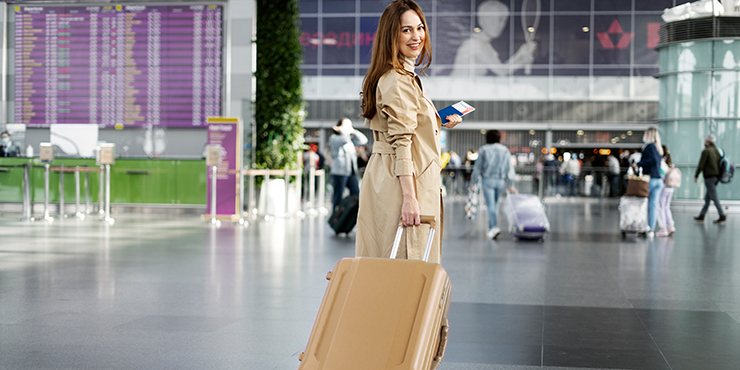Travel is frequently viewed as a rewarding and life-changing experience, as it provides the chance to see the world, learn about other cultures, and have experiences that will last a lifetime. However, it’s important to remember that vacationing has drawbacks and difficulties. This article lists the ten most common drawbacks to help readers prepare for the realities of travel. The more you know about the cons that could arise, the more prepared and well-informed you’ll be for your trips.
10 Main Disadvantages of Travelling You Should Know
1: The expense of traveling is one of the major drawbacks of doing so. Costs like lodging, transportation, meals, and entertainment may pile up quickly, damaging your trip. Long-term travel or visits to countries with high living costs might strain your bank account. Careful planning and budgeting are essential to reduce financial stress and unanticipated costs.
2: Fatigue and jet lag are side effects of crossing international time zones, which can reduce your body’s natural rhythms. It may take some time and effort to adjust to a new time zone; meanwhile, you may have sleep disruptions, decreased appetite, and general fatigue. The first few days of a journey are especially vulnerable to the draining effects of jet lag on energy levels and productivity.
3: Feelings of homesickness are common among those who have been away from home for an extended period. Celebrating or focusing on critical events can be difficult when you are far from home and your loved ones. Feelings of homesickness can dampen your spirits and sap your energy, so finding ways to maintain relationships and make yourself at home away from home is essential.
4: Challenges with Communication Language problems are a common issue for travelers. If you can’t interact with the locals, finding your way around may be challenging, getting help, or fully immersing yourself in the culture. Even if you take the time to learn some simple phrases or use a translation tool, you may find that you are still at a disadvantage.
5: When traveling to a new nation, being aware of and adapting to the local customs and values is essential. It’s essential to be flexible and aware of other cultures when traveling. There may be significant distinctions from the norms you are accustomed to regarding customs, culinary preferences, social interactions, etc. To overcome these obstacles and avoid misunderstandings, it is crucial to maintain an open mind and appreciate cultural differences.
6: Traveling presents some safety risks, which increase with distance from home. Tourists may face potential dangers, including theft, scams, natural disasters, and political unrest. There are ways to lessen the likelihood of harm while traveling, including familiarising oneself with the local safety regulations, getting the appropriate vaccines, buying travel insurance, and employing essential safeguards.
7: Planned trips may need to be altered due to aircraft cancellations, bad weather, or transportation strikes. Disruptions and delays are especially aggravating when they prevent you from making connections or attending previously scheduled events. A can-do attitude, a backup plan, and checking in on the latest travel alerts will help weather any storm.
8: Illness & Disease: Seeing new places and experiencing various climates might affect your health. Variations in food, exposure to foreign microorganisms, and climate can all increase your risk of developing gastrointestinal, respiratory, or other illnesses. These dangers can be reduced by taking sensible precautions, including keeping hydrated, maintaining high standards of personal cleanliness, and consulting a doctor when necessary.
9: Traveling, especially in big groups, can harm the environment. Some results include increased air travel’s carbon emissions, crowding at famous tourist spots, and harm to easily disrupted ecosystems. You can lessen these impacts by reducing your carbon footprint, promoting environmentally responsible tourism practices, and showing due regard for the local environment and population.
10: Preparation and organization are vital before going on a trip. It can be tedious and stressful to plan a trip, what with having to find and book lodging, arrange transportation, plan activities, and secure necessary visas. Traveling to a new place can be stressful if you learn how to use the local transit, learn the language, and adapt to sudden changes. Logistical difficulties can be reduced with careful planning, organization, and adaptability.
Conclusion:
Although traveling has many upsides, such as gaining new perspectives and making lifelong memories, it is essential to be prepared for any problems. The expense, jet lag, homesickness, language problems, cultural differences, safety worries, disruptions, health hazards, environmental effects, and logistics planning are just some obstacles you should know before booking your trip. You can overcome these challenges and enjoy your travels to the fullest by being prepared for them, being flexible, and keeping a happy attitude.


































































